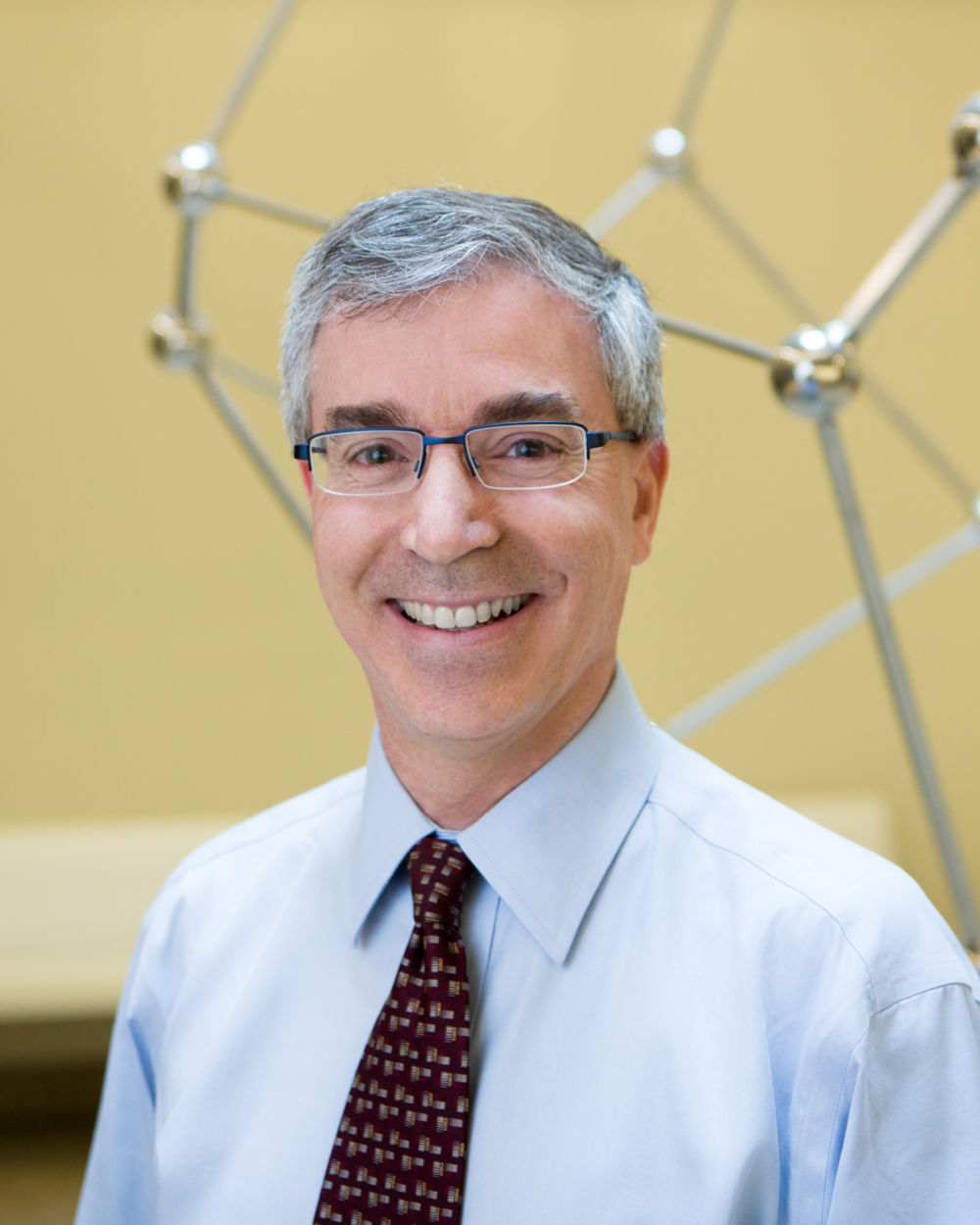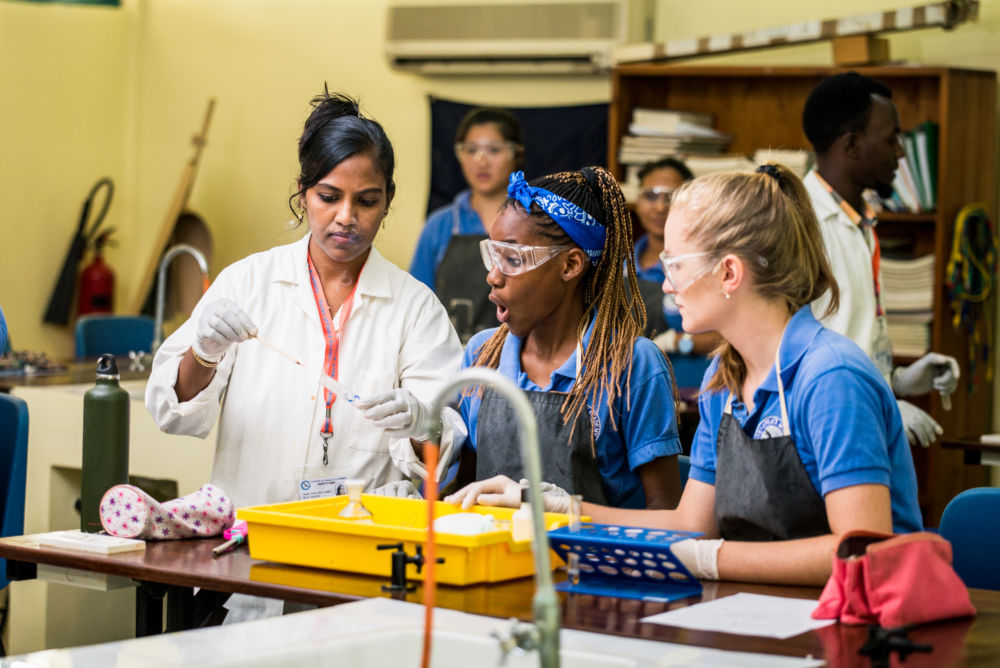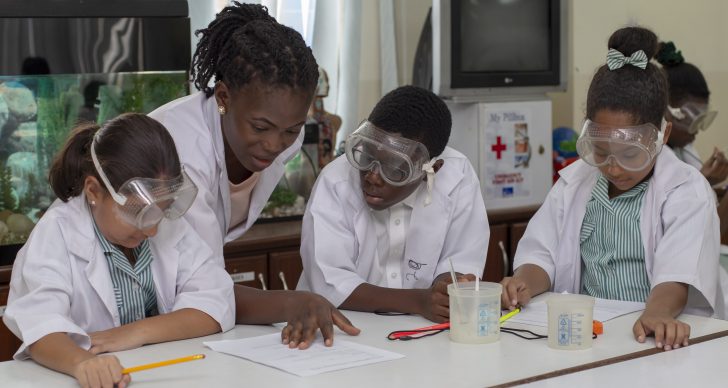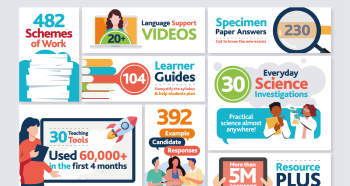Our latest issue of Cambridge Outlook brings together the insights of an array of experts in the field of STEM learning. Among them is Stu Schmill, Dean of Admissions and Student Financial Services, Massachusetts Institute of Technology (MIT) in the US. He describes how STEM subjects at MIT are always evolving to reflect the interests of students and the needs of society.

“When I was an undergraduate, generally we were happy to just work on cool projects but now, I think students have a deeper interest in making a positive impact on the world so the projects they are working on are more embedded in society,” he says.
“Now, more than ever before, we send students away from MIT and into the community, ensuring that the solutions they are finding to problems are practical and useful to the people who are going to implement them. That real-world practicality has really been growing and that’s one of the reasons why the study of humanities, arts and social sciences is so important for scientists and engineers. Quite a number of our students will start companies particularly for the social good.
Demand for blended skills
“There are a whole range of areas where the world really needs talented people who have STEM-discipline skills blended with skills in other disciplines and that demand is going to continue to increase.
“That broad-based approach of the US higher education system means that at MIT, for students who are concentrating on a degree in a science or engineering discipline, a quarter of their class requirements will be in the School of Humanities, Arts and Social Sciences.
A cross-discipline approach to computing
“One of the trends we have seen recently is an increase in the number of students who are interested in computer science because computing is a skill that is useful in all fields. It is overlaying into all industries more than ever. As the population increases, for example, the need for technologies to support human health is going to increase.

“Over the last few years, we have expanded computer science and we now have, for example, a combined degree with biology – Computational Biology. We have the same in economics – Computing Power. Our most recent joint major is Computer Science and Urban Planning. We are also launching an institute-wide college of computing.
“Our intention is to pollenate other areas of study including in the humanities, arts and social sciences, to amplify those areas of study through the use of computer science, artificial intelligence and machine learning. This is really the next frontier in the advancement of knowledge in general. We are excited to begin this.
“We’ve seen that technologies can unleash incredible power and incredible disruption. We want to make sure that when that happens it benefits society and doesn’t cause harm, so we are thinking a lot about ethics.
Cambridge students come prepared
“We receive quite a number of applications from students studying Cambridge International A Levels and we know that students who study that curriculum do very well here – it’s excellent preparation. The students we are seeing are really fantastic so I want to applaud the job the schools are doing in producing students that are not only talented but very eager to pursue the fields that are interesting to them.”

You’ll find more of Stu Schmill’s insights in Outlook, as well as STEM viewpoints from: Professor Pradipta Banerji of the Indian Institute of Technology (IIT) Bombay, whose research is led by a curiosity for real-world structures; Dame Athene Donald, Master of Churchill College at the University of Cambridge, who highlights how women interested in pursuing STEM subjects still face barriers; and Doctor Alison Borthwick, who believes a passion for maths can be ignited in primary school children even by teachers who are reluctant mathematicians.
Schools in India, the Bahamas and the USA share their students’ STEM projects and you can read about a Cambridge IGCSE student from Indonesia who spoke at the United Nations Climate Change Conference.
We would love to hear from your school and students, too.
Get in touch at outlook@cambridgeinternational.org





